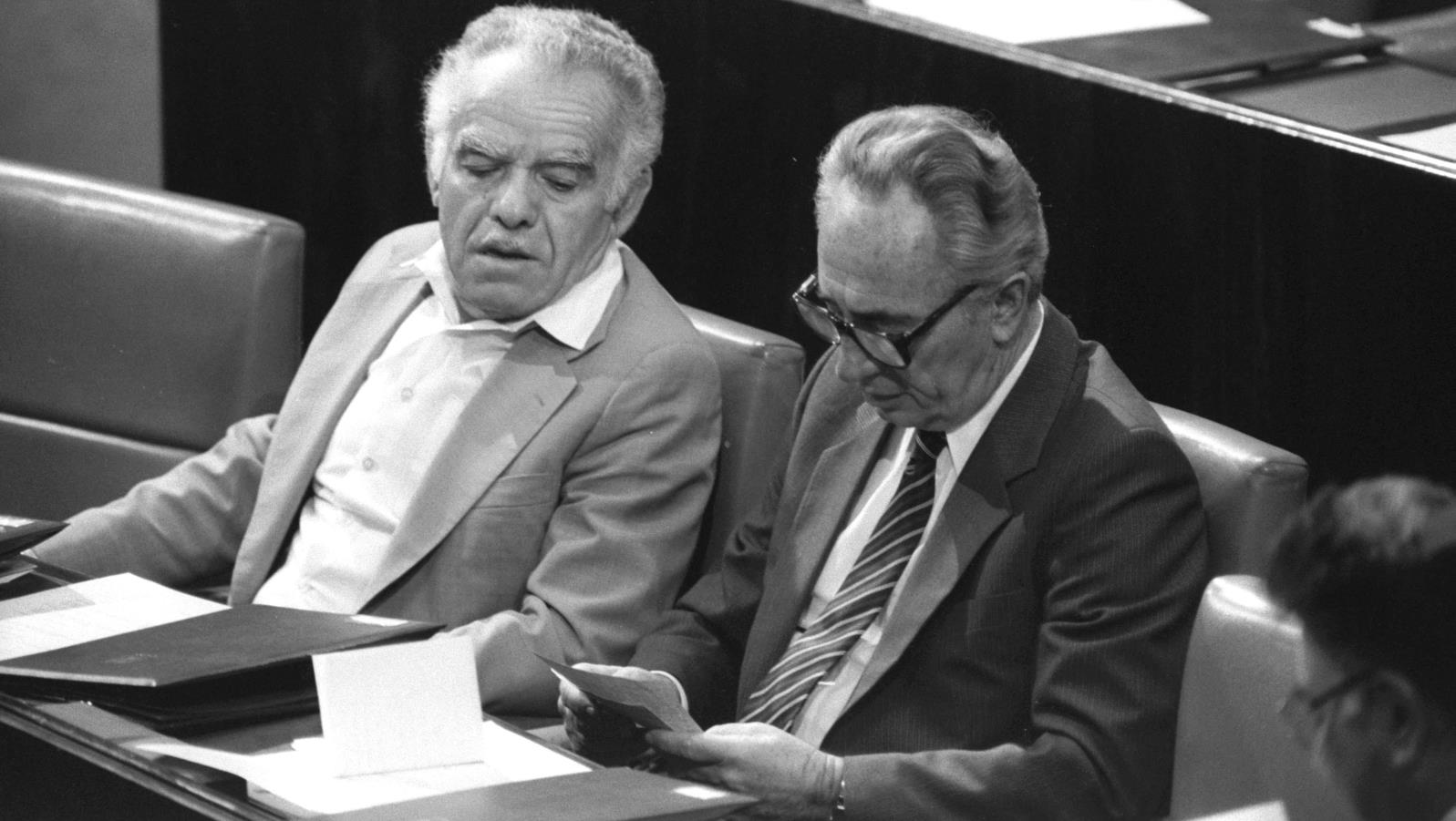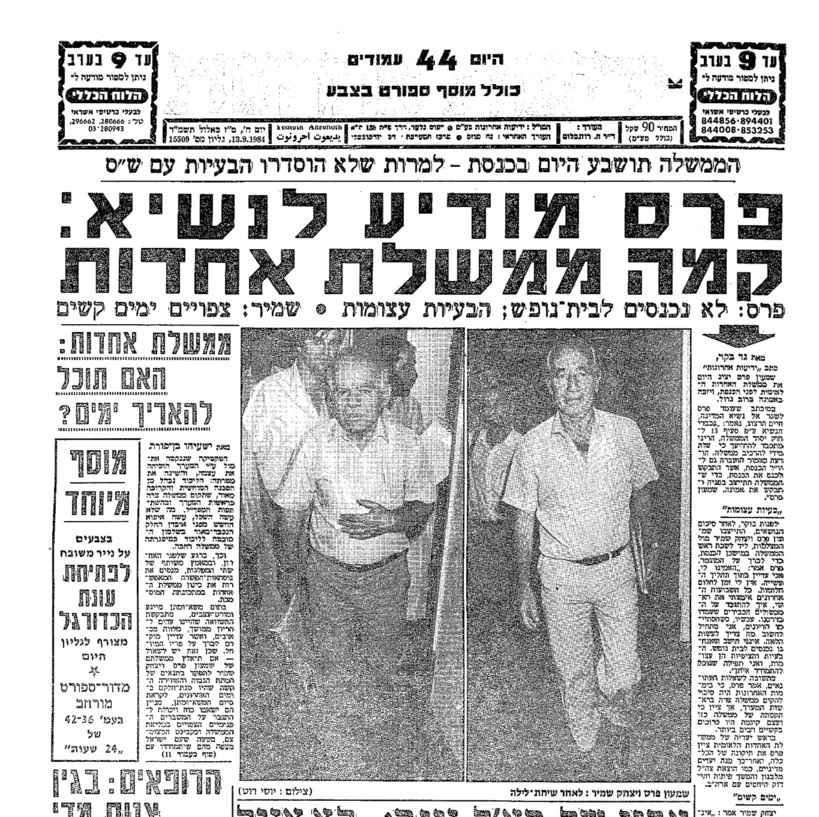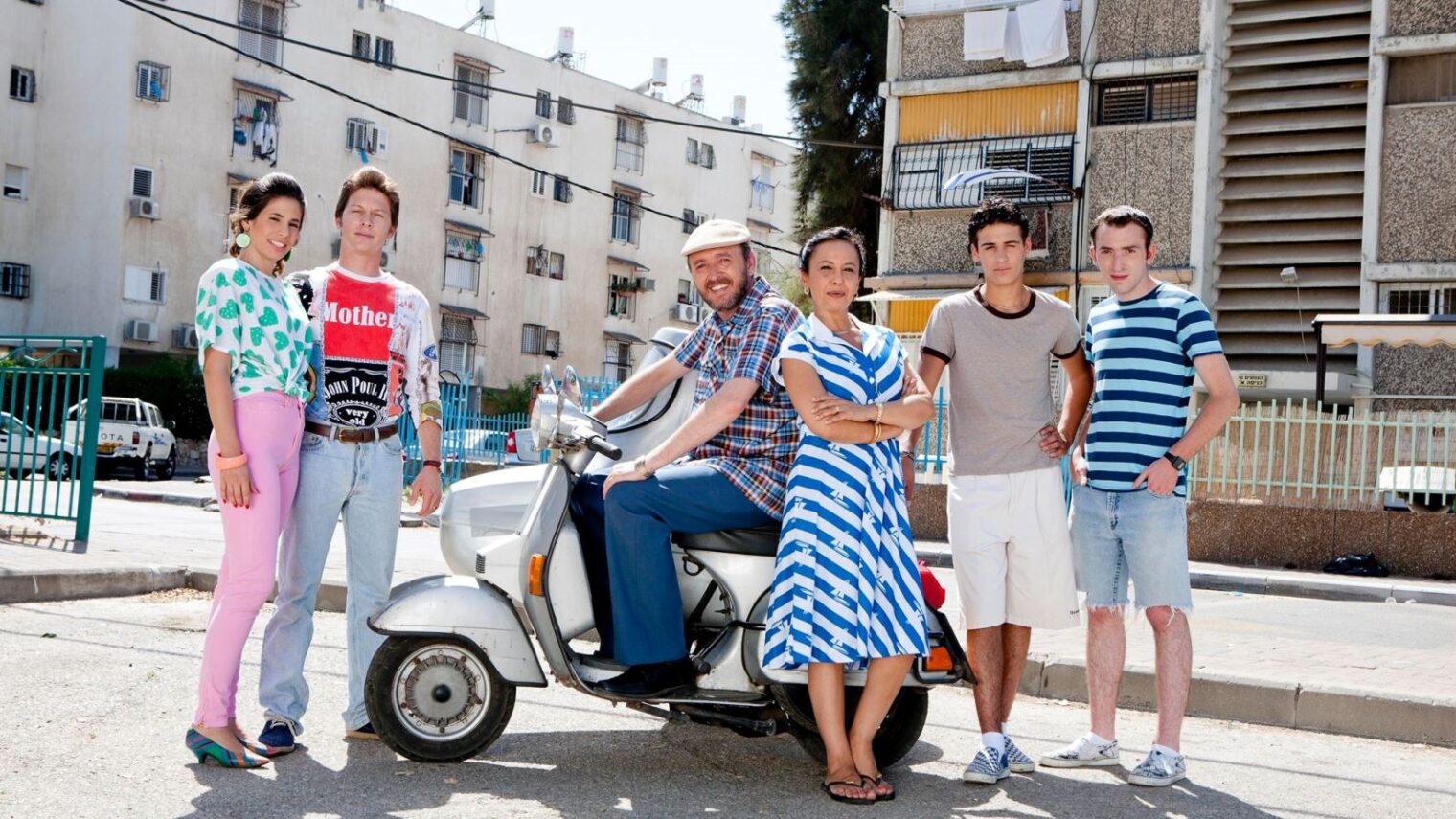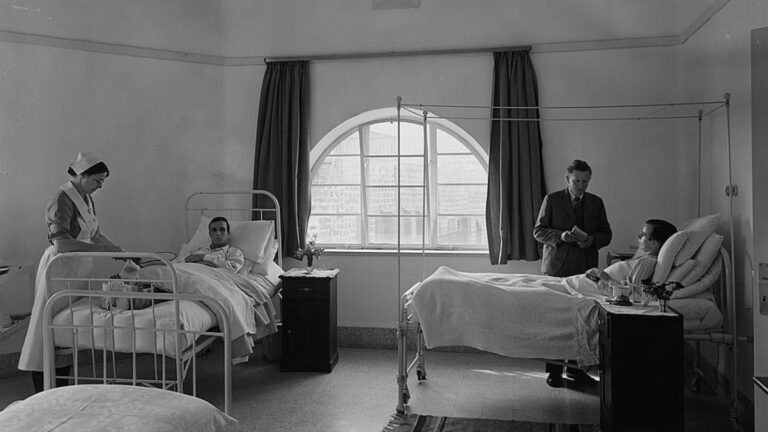This week, we received glad tidings that the delightful Israeli sitcom “The Eighties” is back for its fourth season.
The show is a nostalgic look at standup comedian Shalom Assayag’s youth in Tirat HaCarmel, a town populated by diverse and often divided immigrant groups. In an amazing bit of generational reverse-engineering, Assayag plays the role of his father while his son, actor Daniel Assayag, plays his.
With local elections coming soon in Israel, we recall that Episode 5 of the first season of “The Eighties” dealt with the controversial national elections of 1984.
The election ended in a stalemate between right-wing and left-wing blocs, which formed a national unity government headed for two years by Shimon Peres (Left) and then two years by Yitzhak Shamir (Right).

Campaigning among the 26 different parties included a fairly new concept in Israeli political campaigns: the television advertisement. The year 1984 was only the second time that political propaganda had been allowed on the air.
“The Eighties” episode opens with the family watching pre-election promos that were, in themselves, the source of national controversy on the popular culture front. Beloved comedy trio HaGashash HaHiver came out as Labor party backers in a series of humorous vignettes in which they confessed to having been Likud voters and diehard Beitar Jerusalem soccer fans now firmly allied with the Left.
Banai (wearing Beitar team colors): “I’m a Jerusalemite. I was born in Jerusalem, in Machane Yehuda. And from the day that I can remember myself, I’ve loved Beitar Jerusalem. … But football games are good on Shabbat. The Labor Party is good on all days of the week. Not just the whole week — the whole year. The State, habibi, is not a football game.”
HaGashash’s endorsement was countered on the Right by actor-comedian Sefi Rivlin, himself the son of a celebrated Jerusalem family, who came out swinging with interviews with Beitar Jerusalem team members. Rivlin also criticized Shimon Peres in a brief dialogue with a photograph of Peres.
Rivlin: Shimon Peres, do you want the residents of Petah Tikva to start preparing their bomb shelters?
Photo/Peres: Yes… and no.
Rivlin: And is that your final answer?
Photo/Peres: Yes… and no.
“Yes… and no” caught on and became part of the popular vernacular for a time.
In addition to new and rehashed memes, the 1984 elections included a few other significant events that continue to affect us to this day.

That was the year that Shas, the Haredi Sephardic party, was first elected to the Knesset. The 11th Knesset also contained two controversial parties: far-right Kach, led by Meir Kahane, and the far-left Arab-Jewish Progressive List for Peace (PLFP).
Kahane’s entry into the Knesset, after three unsuccessful tries, led to amendment 7A to the Basic Law: The Knesset (1958), as follows: “A candidates’ list shall not participate in elections to the Knesset, and a person shall not be a candidate for election to the Knesset, if the objects or actions of the list or the actions of the person, expressly or by implication, include one of the following: 1. negation of the existence of the State of Israel as a Jewish and democratic state; 2. incitement to racism; 3. support of armed struggle, by a hostile state or a terrorist organization, against the State of Israel.”
On this basis, Kach was banned by the Central Elections Committee for being “racist” and “anti-democratic” and disqualified from running in the 1988 elections. The Central Elections Committee also initially banned the PLFP from running in 1988 but the decision was overturned by the Supreme Court.
Under Shimon Peres’s guidance, first as prime minister and then as minister of finance and deputy prime minister under Shamir, the 11th Knesset tackled hyper-inflation with a series of economic reforms that laid the foundations for the conditions enjoyed by the Startup Nation today.
All of this was in the future for the town of Tira and the Assayag family during the 1984 election campaign. As the episode reveals, neither of the major parties scored a win. Why? Because of the true nature of politics and how things really work.
















![Elections 1977 – Likud posters] In 1977, Menahem Begin led an election upset as Israel’s first non-Labor prime minister. Credit: GPO Elections 1977 – Likud posters] In 1977, Menahem Begin led an election upset as Israel’s first non-Labor prime minister. Credit: GPO](https://static.israel21c.org/www/uploads/2019/09/Elections_1977___Likud_posters_-_GPO-768x432.jpg)
